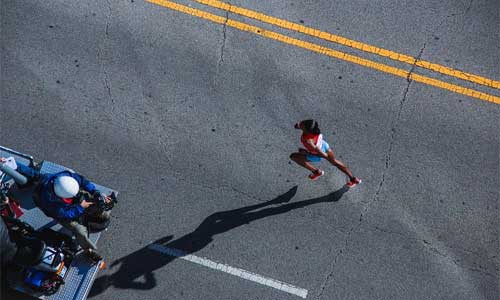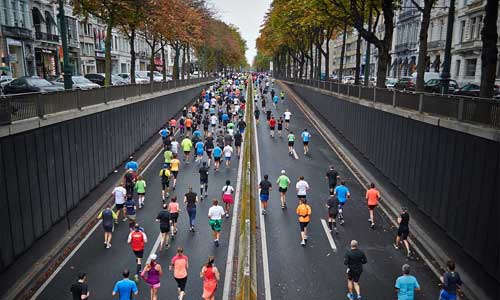
Many runners want to join a marathon as a personal challenge, get healthier for a charity challenge or even lose weight. In addition, runners might want to test their limits and prove they can go the distance. The following is a guide for preparing to run a marathon.
Getting Started

Know your limits: Be aware of your limitations before starting any training programmes for a marathon because the potential injury risks of 26.2 miles are higher compared to a shorter distance.
Start early: To be successful when training for a marathon, it’s recommended you start by building your base and running consistently for at least one year.
Start small: The best way to prepare for the first marathon is to run a few shorter races, such as a 5K or half-marathon.
Choosing the First Marathon

Marathons range from small, low-key races to major events with thousands of runners. To get used to race day, try out some shorter races or cheer someone else on. When choosing a marathon, the advantages you get depend on the location you select for the marathon. The home-field offers the opportunity to run on familiar roads.
Rest and Recovery

Rest days are important because they let your muscles recover after a workout and help you avoid mental burnout. Take time off and engage in mind-relaxing activities such as playing in the mFortune online casino. The greatest enemy of marathoners is injury, and the best protection against damage is rest.
However, if you feel energetic on your rest days, try cross-training, the best relaxing activity for a marathoner. It includes walking, hiking, cycling, swimming, and yoga, among others not as impactful as running.
